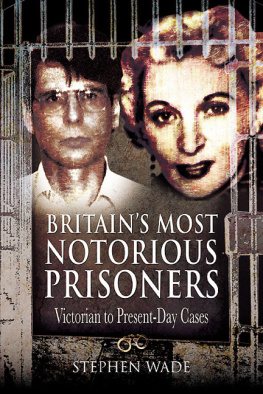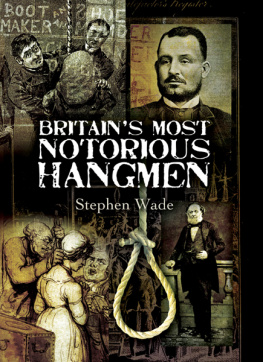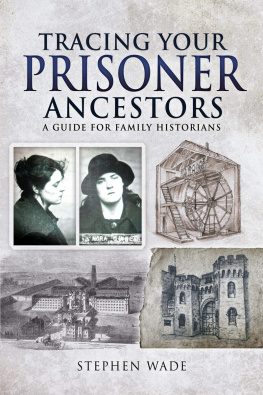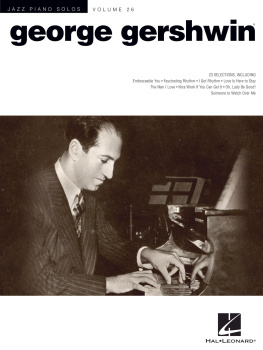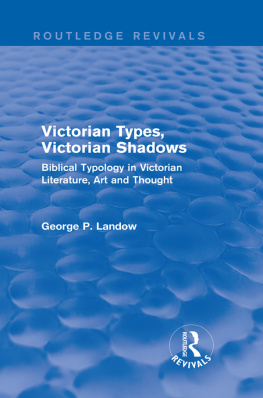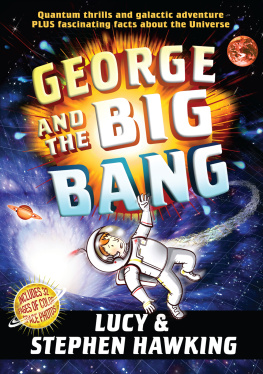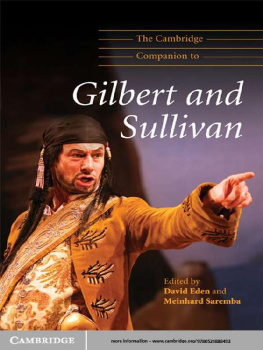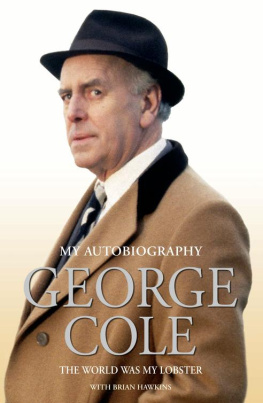Title Page
A VICTORIAN SOMEBODY
The Life of George Grossmith
by Stephen Wade
Publisher Information
First published in 2015 by
Chaplin Books
1 Eliza Place
Gosport PO12 4UN
www.chaplinbooks.co.uk
Digital edition converted and distributed in 2015 by
Andrews UK Limited
www.andrewsuk.com
Copyright 2015 Stephen Wade
All rights reserved. No part of this publication may be reproduced, stored in any retrieval system or transmitted in any form or by any means, electronic, mechanical, photocopying, recording or otherwise, without the prior written permission of the copyright holder for which application should be addressed in the first instance to the publishers. No liability shall be attached to the author, the copyright holder or the publishers for loss or damage of any nature suffered as a result of the reliance on the reproduction of any of the contents of this publication or any errors or omissions in the contents.
A Note on the Dynasty
The number of Georges among the Grossmiths is an endless source of confusion. Genealogy sites concerned with Grossmiths attempt to relate and explain the branch that may or may not concern the Grossmiths at the centre of each family tree. With this in mind, the biographer has to make it plain at the outset what nomenclature is to be used. I apply the following:
George the First - father of my subject (1821-1880)
George - my subject (1847-1912)
GG - George, son of my subject (1874-1935)
Preface
What is it about Gilbert and Sullivan that still appeals to us, over a century on? The wit of Gilberts words and the beauty of Sullivans music, yes, of course; that goes without saying. But surely theres more to the matter than that. Theres a meaning in the operas, even a philosophy, that goes beyond their jokes and catches. And we get a glimpse of this philosophy, I believe, in an image which tends to flash into my brain whenever I think about Gilbert and Sullivan: a man, resplendent in the robes of some high office - be it First Lord of the Admiralty, Lord Chancellor, or, for heavens sake, Lord High Executioner of Titipu - with a disrespectful, larky look in his eye as if to say, Isnt it silly?
And when I consider this image with all due care and concentration, I realise the man has the face of George Grossmith.
There can be little doubt that the popularity of the operas in their original London runs owed much to the personalities of the performers: George Grossmith, Rutland Barrington, Jessie Bond and all the others who had their devoted followers. And as the series progressed, Gilbert and Sullivan began to write specifically for Grossmith and Barrington and Bond and so on, suiting the material to the abilities of the performers. Gilbert recalled that when he first had the idea for what became The Mikado , he decided almost immediately that As the principal character was to be a Japanese executioner, it was obvious that this part must be written for Mr Grossmith, and equally obvious that he must be represented as an exceptionally tender-hearted person whose natural instincts were in direct opposition to the nature of his official duties. Ko-Ko was tailor-made for Grossmith, and when any of his successors take on the Kokovian mantle, they are, whether they know it or not, to some extent also assuming some of the characteristics of long-dead George, the first interpreter of the part.
Because Grossmith was himself a humorist and a songwriter of real distinction, he was better placed than most to absorb and interpret the humour of the great Gilbert and Sullivan roles. But, for the same reason, he did not always see eye to eye with Gilbert, who, as the original stage-manager (director) of the operas, was primarily concerned with ensuring his own vision was created on stage as far as humanly possible. Gilbert coached the performers personally and to the smallest detail as to how to speak every line, how to make every movement. It is not quite fair to say that he wanted his actors to be marionettes responding to his commands, and in fact he was quite prepared to listen to suggestions made in rehearsal, but he always held himself to be the final arbiter, and if he didnt like an idea for a new line or piece of business, it didnt go in. It is easy to see why a man like Grossmith, an entertainer in his own right who had been used to having his own head as to what was funny and what was not, would not always be happy to give way to Gilbert.
However, in spite of this, Grossmith remained friendly with Gilbert to the end -with, perhaps, the occasional interval of coolness inevitable when dealing with a man as volatile as Gilbert. They visited each other socially, and when, for instance, Gilbert referred to Grossmith in a letter as that homuncule, this should surely be taken in the spirit of affectionate raillery. Even when Gilbert wrote to Sullivan that Grossmith was a d----d bad actor this should perhaps not be taken at face value; Gilbert had, after all, been known to refer even to his own libretti as d----d nonsense. With Gilbert, affection often had to be read between the lines - he confessed that the Englishmans desire to keep his emotions to himself is always strong within me - and he sometimes expressed his friendship in insults which could easily be misconstrued. In fact he knew very well how much he owed to Grossmith for the success of Gilbert and Sullivan; and he had enough regard for Grossmith to ask him later in life to compose the music for their ill-fated comic opera Haste to the Wedding.
The two men had essentially different styles of humour. Gilbert saw everything from the standpoint of a man who has had a revelation of the fundamental absurdity of life but has never become reconciled to it. Every fresh piece of evidence renewed his outrage, hence the satirical tone of much of his comedy. But George Grossmith was resigned to the foolishness of human behaviour, and was able to transform it into the observational humour of his songs, skits and monologues - not to mention The Diary of a Nobody .
Grossmith never seems truly angry with the craziness of humanity, as Gilbert sometimes does; only, at worst, exasperated. After all, if we laugh at Charles Pooter, its only in the same way that we laugh at ourselves; because, of course, we are Pooter. The Grossmith larkiness that survives in the traditional performance of his Gilbert and Sullivan roles reflects this, I think. And we are all the richer for it.
Andrew Crowther
Introduction
Doing a Turn
On the stage he was natural, simple, affecting.
Twas only that, when he was off, he was acting
Oliver Goldsmith: David Garrick
There is no shortage of pictures and drawings of George Grossmith. They all show a neat, dandyish man, small-framed and athletic, with scholarly pince-nez perched on his nose, and a sense of fun and humour radiating from him. The images convey spriteliness, vivacity and wit. Here is a man who will provide you with good company, someone who sees the glass of life half-full and works to keep it that way. Many of the pictures show him at a piano, and for decades of his life, that was the how the public knew him - as the self-styled society clown. He became very rich on that image, and when interviewed by a number of journalists in the 1890s, he was very much the representative of what many commentators were calling the New Humorists.
Yet, in spite of two volumes of autobiography, Grossmith remains in some sense elusive. This is because his wit and humour constantly bubble on the surface of his identity; we long to know what lies beneath the smile and the pince-nez. As with so many impressionist comedians and satirists, there is an alternative self somewhere beneath the fun. This is not to say that this book will insist on following the modern trend of digging for scandal or transgression. Quite the opposite applies: this is the story of something very modern - a celebrity. He was a star for Gilbert and Sullivan, and in some ways they moulded him into the celebrity he became. But paradoxically, his name has never been out of print in spheres quite different from the Savoy Operas: with his brother he produced the timeless classic of quintessentially English humour, The Diary of a Nobody .
Next page


